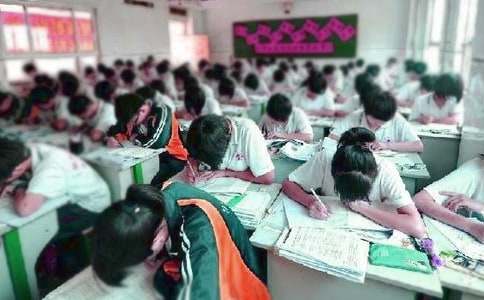- 相关推荐
2016全国英语等级考试pets3完型填空模拟题及答案
2016年上半年全国英语等级考试时间为3月19日至20日,为了帮助大家能顺利通过公共英语考试,下面YJBYS小编为大家带来2016全国英语等级考试pets3完型填空模拟题及答案,供大家参考学习,预祝考生备考成功!

练习题一
A special lab at the University of Chicago is busy only 26 . It is a dream 27 where re-searchers are at work 28 dreamers. Their findings have concluded that 29 dreams from three to seven times each night, 30 in ordinary life a person may 31 none or only one of his dreams.
While the 32 sleep, special machines 33 their brain waves and eye movements as well as the body movements that 34 the end of a dream. Surprisingly, all subjects 35 soundly. 36 say that a person usually fidgets(烦躁).before a dream. 37 the dream has started,his body relaxes and his eyes 38 more active, as if the curtain _ 39 _on a show. When the machine 40 that the dream is over, a buzzer wakes the 41 . He sits up, records his dream,and goes back to sleep-perhaps to _ 42 some more.
Researchers have found that if the dreamer, is 43 immediately after his dream,he can usually recall the entire dream. If he is allowed to sleep even 44 his . 45 0f the dream will have faded. That's why most people have many dreams at night, but forget most of them in the morning.
26. [A] at noon [B] in the morning [C] at night [D] in spring
27. [A] mill [B] laboratory [C] hospital [D] classroom
28. [A] studying [B] studied [C] to study [D] having studied
29. [A] everyone [B] anyone [C] someone [D] no one
30. [A] therefore [B] if [C] despite [D] although
31. [A] miss [B] remember [C] realize [D] notice
32. [A] objects [B] experiments [C] goals [D] subjects
33. [A] manufacture [B] initiate [C] prepare [D] record
34. [A] signal [B] sign [C] sigh [D] assign
35. [A] work [B] wake [C] sleep [D] remain
36. [A] Subjects [B] Examiners [C] Computers [D] Observers
37. [A] Once [B] Never [C] Hardly [D] Frequently
38. [A] start [B] produce [C] become [D] appeal
39. [A] had gone up [B] has gone up [C] goes up [D] is going up
40. [A] decides [B] pronounces [C] refers [D] indicates
41. [A] researcher [B] body [C] sleeper [D] on-looker
42. [A] remember [B] forget [C] imagine [D] dream
43. [A] asleep [B] wakened [C] wakening [D] slept
44. [A] more five minutes [B] five more minute
[C] five minutes [D] five more minutes
45. [A] colour [B] record [C] memory [D] description
答案及解析
26.C【解析】此题考查对这篇文章的主要内容的宏观掌握。本篇是关于研究人员在实验室里研究人做梦的类型。at night符合题意。
27.B 【解析】联系上一句“在芝加哥大学的一个特殊实验室里”。只有B符合题意。
28.A【解析】“studying”在文中作伴随状语,B、C、D项则不合适。
29.A【解析】实验证明每人每夜都会做3—7个梦。其他选项与题意不合。
30.D【解析】从上下文可以得出此处应填表转折关系的词。therefore因此;if如果;despi不管,均不合题意。
31.B【解析】本句意为“但在日常生活中,一个人可能记不住或只记住一个梦。”miss错过;remember记住;realize意识到,实现;notice注意到。
32.D【解析】此题考查对上下文的理解,subject实验对象,只有表对象客体时才会用“object of sth.”的句型。
33.D【解析】此题考查对词义的辨析。manufacture制造;initiate着手于;prepare准备;record记录。
34.B【解析】sign意为“标志”,这里是当动词使用。
35.C【解析】此题考查词语搭配,soundly意为“安稳的”,可以与sleep搭配,其他项均不符合。
36.D【解析】subjects实验对象;examiners检查者;只有observers观察者符合题意。
37.A【解析】once -旦。hardly用于“hardly.when.…”结构。
38.C【解析】become作系动词时意为“变得”,后接形容词。
39.B【解析】此题考查的是时态,通篇用的都是现在时。这里是指“帷幕已经拉开,演出即将开始”,故用现在完成时。
40.D【解析】本句意为“当机器表明梦做完了,蜂鸣器会唤醒睡觉的人”。indicate意为“表明”,符合文意。
41.C【解析】此题考查对上下文的理解,意思是“蜂鸣器会唤醒睡觉的人”。
42.D【解析】实验对象继续睡觉,因为睡觉过程中会出现很多梦,根据40题的分析可知D。
43.B【解析】做梦者应是被叫醒,使用被动语态结构,“be+过去分词“表被动。
44.D【解析】此题考查语法结构,再多睡5分钟,表达应为“数字+more+名词复数形式”。
45.C【解析】由31题中的remember可推出此处是指对梦的记忆逐渐消失。
练习题二
Most young people enjoy physical activities, walking, cycling, football, or mountaineering.
These who have a passion 26 climbing high and difficult mountains are often 27 with astonishment. Why are men and women 28 to suffer cold and hardship, and to 29 on high mountains? This astonishment is caused, probably, by the difference between mountaineering and other forms of activities 30 which men give their leisure.
There are no man-made rules, as there are for 31 as golf and football. There are, of course, rules of different kinds which it would be dangerous to 32 , but it is this freedom from man-made rules 33 makes mountaineering attractive to many people. Those who climb mountains are free to their own 34 .
If we 35 mountaineering with other more familiar sports, we might think that one big difference is 36 mountaineering is not a “team work”. However, it is only our misunderstanding. There are, in fact, no :matches” 37 “teams” of climbers, but when climbers are on a rock face linked by a rope on which their lives may 38 , obviously, there is teamwork.
A mountain climber knows that he may have to fight with natural 39 that ate stronger and more powerful than man. His sport requires high mental and 40 qualities.
A mountain climber 41 to improve on skill year after year. A skier is probably past his best by the age of thirty, and most international tennis champions 42 in their early twenties. But it is not 43 for men of fifty or sixty to climb the highest mountains in the Alps. They may take more 44 than younger men, but they probably climb more skill and less 45 of effort, and they certainly experience equal enjoyment.
26. [A]for [B]in [C]to [D] of
27. [A]looked up to [B]looked forward [C]looked into [D] looked upon
28. [A]willing [B]reluctant [C]unwilling [D] probable
29. [A]take pains [B]run risk [C] take a risk [D] make efforts
30. [A]to [B]with [C]for [D]towards
31. [A]so [B] various [C] different [D]such
32. [A] apply [B] worry [C] ignore [D] notice
33. [A] which [B] that [C] how [D] why
34. [A] methods [B] forms [C] rules [D] activities
35. [A] correlate [B] relate [C] compare [D] contrast
36. [A] for [B] what [C] which [D] that
37. [A]within [B]from [C]beyond [D]between
38. [A]exist [B]go [C]depend [D]confide
39. [A]strength [B]storms [C]powers [D]forces
40. [A]physician [B]physical [C]physiological [D]psychological
41. [A]tries [B]continues [C]wants [D]decides
42. [A]will be [B]appear [C]are [D]is
43. [A]unusual [B]normal [C]common [D]strange
44. [A]strength [B]efforts [C]energy [D]time
45. [A]shortage [B]lack [C]rubbish [D]waste
参考答案
26. A have a passion for sth “对——有强烈的感情、爱好”
27. D look up to“仰慕、尊敬某人”, look forward“期盼,盼望”, look into“调查”, look upon“把——看作,把——视为”
28. A willingly“愿意的”
29. C run risk“冒险”(被动的处于危险之中), take a risk“冒险”,
30. A give leisure to sth “把空闲时间用于——”
31. D so + adj + a(n) + n., such + a(n)+ adj + n
32. C 此处的含义为“不遵守规定登山会很危险”
33. B It is —— that ——为强调句型
34. A 文中的意思为“登山者们自由地选择登山的方法”。
35. D compare with“与——比较”, contrast with“对比、对照”,指比较某一事物与另一事物,以显示它们的相异之处,表现明显的差别。
36. D 连词that引导的从句作系动词 is的表语
37. D between“在——之间”
38. C depend on sb or sth“需要某人或某事的支持和帮助
39. D strength“力量的强度”, power“运用能力或体力和脑力来做某事”, force“实施力量,产生行动或征服对手”。
40. B mental“智力的”, physical“体力的”
41. B year after year后应该选有“持续”之意的动词。
42. C be + in + one's twenties 表示“在某人二十多岁时”
43. A unusual “不寻常的”
44. D 根据文章的含义,爬山者年龄大应该使用更多的时间。
45. D shortage“短缺”, waste“浪费”
【全国英语等级考试pets3完型填空模拟题及答案】相关文章:
考研英语完型填空试题及答案解析08-05
2017考研英语完型填空练习题及答案06-30
考研英语完型填空高分技巧09-21
考研英语完型填空应试技巧08-11
2016中考英语完型填空练习题及答案06-06
专业四级考试完型填空练习题09-12
中考英语完型填空之答题技巧09-17
浅谈中考英语完型填空的答题技巧08-16
全国英语等级考试08-17